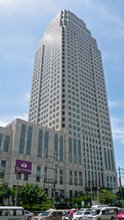Buyer waiting to see if political situation gets any better
Residential projects that are worth more than Bt10 billion in resort destinations like Phuket, Krabi, Hua Hin, Pattaya and Koh Samui have been put on hold now that demand from foreign investors is showing a significant drop since last year.
According to a survey by The Nation last week, a number of property developers in tourist destinations have postponed the completion of the construction as they wait for an economic recovery.
International property agent CB Richard Ellis (CBRE) reported that the forward momentum in Phuket property in terms of price and take up over the last five years came to a halt in the fourth quarter of last year due to global recession.
This has resulted in a significant drop in transactions and project launches, while cancellations have increased considerably, the agent said.
"In many ways, the property market in Phuket is a foreign-driven market located on a Thai island," said David Simister, chairman of CB Richard Ellis Thailand. "The bulk of visitors, hotels guests and property buyers are all foreigners."
Nabeel Hussain, manager of CBRE Research, added: "Our earlier estimates called for as many as 1,700 condominium units to be completed in 2009, but we believe a number of projects will be delayed due to slower take-up rates. Similarly, in the villa market, we have identified over ten projects with more than 450 units that went on hold or were delayed during last year's fourth quarter alone. It also appears that around a quarter of all upscale hotel rooms under development are now on hold as well."
However, since the start of 2009, CBRE did note some positive elements. These include the fact that tourist numbers in Phuket remain among the highest compared to any other Asian resort and there is a lack of bank-financed mortgages that have played a significant role in the demise of other markets. As evidenced by the island's popularity, they point to the fact that the Ibis Patong Hotel recorded 100 per cent occupancy during the first weekend in March, which is after the end of the high season.
"In the long-term, we remain bullish on this market, since we believe that buyers of luxury and high-end properties tend to make choices based on lifestyle and not primarily pricing. That said, it is unlikely that demand for these high-end properties will recover before the global economy improves. Our view is that potential buyers who are able to view investment with discretion and who have suffered little from the global downturn still be interested in the near-term," Simister added.
Colliers International Thailand's head of research Risinee Sarikaputra also said that purchasing power of foreign investors, especially those from the United States, Europe, Hong Kong, and Singapore, have dropped significantly to between 20 per cent and 50 per cent depending on the location.
"After the sub-prime crisis hit the US and turned into a global crisis now, demand for luxury residential projects at prices between Bt25 million and Bt50 million have significantly dropped in both residential projects in inner-Bangkok and resort destinations," she said.
With the market trend, a number of property developers planning to launch new projects, especially those worth more than Bt10 billion, have decided to postpone things.
"Only customers who plan to launch new projects this year have decided to wait until next year," Risinee said.
Managing director of Knight Frank Charter (Thailand), Phanom Kanjanathiemthao, admitted that demand from foreign investors had halved last month compared to the same period last year.
The global economic crisis has badly affected the Thailand property market now that buyers from the US, Europe, Hong Kong and Singapore have suspended their overseas investments. As a result residential sales in Thailand, especially in terms of luxury condominiums that are focused on foreign buyers, has suffered significant losses since the last quarter of 2008 until now, he said.
"In terms of market trends, we advise property developers to put off the launch of their new residential projects until the second half of next year," he said.
Nexus Property Consultants' managing director Apisit Limlomwongse admitted that his company's sales had dropped in the first quarter of this year to between 5 and 10 per cent, and as a result the firm has had to organise road shows to boost its sales.
"The US financial crisis has not had a direct impact on the Thai property market as much as the current political uncertainty, which is scaring away local and foreign buyers planning to purchase property in the Kingdom," he explained. "Most of our potential buyers have suspended their decision to purchase and are waiting to see when the unrest will end."
Apisit added that the drop in the Bangkok property market might also have something to do with the location of some residential projects, especially those that are a fair way away from the Skytrain or the underground train system.
However, he said, prices for projects located close to transit systems will remain stable.
Source: The Nation Published on April 9, 2009
Wednesday, April 29, 2009
Subscribe to:
Post Comments (Atom)


No comments:
Post a Comment